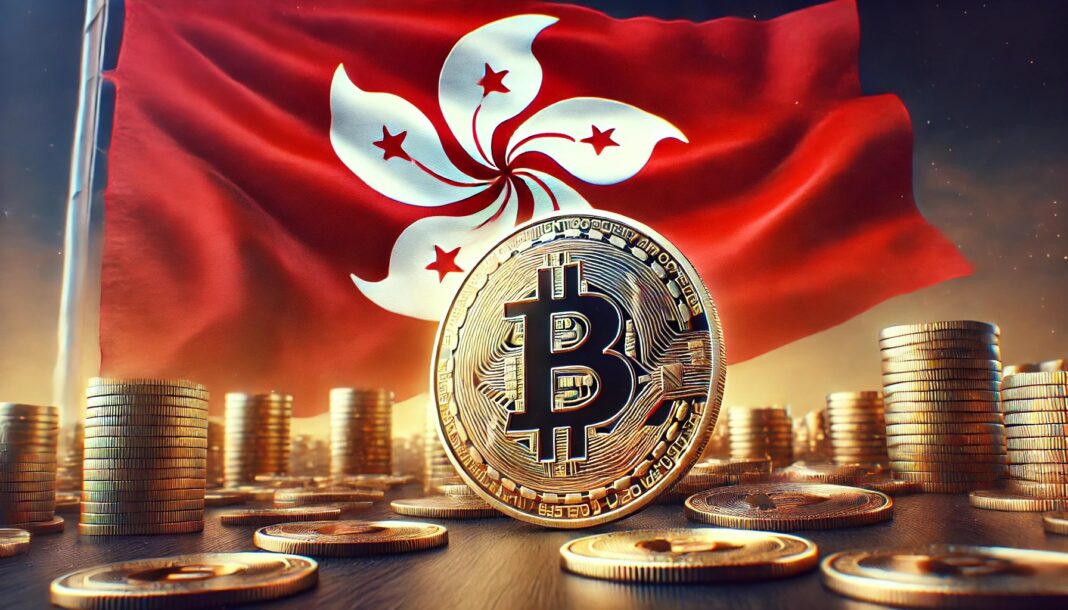Politician and entrepreneur Wu Jiezhuang—a member of the Hong Kong Legislative Council and the National Committee of the Chinese People’s Political Consultative Conference—has called for the inclusion of Bitcoin in the city’s fiscal reserves. The proposal emerged during an interview published by the pro-Beijing newspaper Wen Wei Po, established in Hong Kong on September 9, 1948.
Lawmaker Suggests Adding Bitcoin To Fiscal Reserves
Wu Jiezhuang’s remarks, featured in a special topic piece dated December 30, emphasize that “including Bitcoin in the national financial reserves is not a new idea,” highlighting the fact that a number of smaller countries have already adopted BTC as a legal currency. Wu further pointed out: “Some states in the USA have also legislated that 10% of their reserves be in Bitcoin, allowing for more diversified asset allocation.”
He added that if US President-elect Donald Trump were to “aggressively promote the inclusion of Bitcoin into government strategic reserves,” it would have a global impact, especially on traditional reserve assets. Wu used this context to urge the Hong Kong Special Administrative Region (SAR) government to consider whether to “incorporate digital assets and cryptocurrencies into financial reserves,” including the possibility of using the Exchange Fund for continual BTC purchases over the long term.
In response to these calls, the SAR Government’s Treasury Bureau confirmed that Hong Kong’s foreign exchange fund invests in a “globally diversified asset class and markets to spread risk and enhance long-term returns.” While cryptocurrency is not formally designated as a target investment for the foreign exchange fund, the Bureau acknowledged that “externally hired investment managers also invest in globally diversified asset classes and markets,” allowing for potential—though minimal—cryptocurrency-related investments.
Regarding financial security, the Bureau reiterated Hong Kong’s stance of regulating the crypto market based on the principle of “same business, same risk, same rules.” This approach aims to mitigate risks and ensure that financial security is maintained, while the government continues “to improve the regulatory system and launch measures to promote the development of the local virtual asset market.”
Wu Jiezhuang expressed concerns about the broader ramifications if the United States were to recognize BTC as a strategic reserve asset. He suggested that such a move could destabilize traditional assets: “If economic powerhouses actively incorporate Bitcoin into strategic reserves, its value will stabilize, prompting more countries to follow suit and reduce holdings in traditional assets, causing traditional asset prices to fall and shrinking government financial reserves.”
Wu posited that BTC might eventually replace “precious metals with low practical utility, including gold and silver,” due to its lower storage and transport costs. While mentioning that Bitcoin itself lacks physical utility, he argued that the cryptocurrency’s ease of transfer and storage gives it an edge in market trade-offs, especially compared to gold’s substantial storage and logistics expenses.
Wu underscored Bitcoin’s expanding market presence, referencing the fact that 12 Bitcoin- and Ethereum-linked ETFs are currently traded on the Hong Kong Stock Exchange, while the Hong Kong Securities Regulatory Commission has issued 7 trading platform licenses. This growth stands in stark contrast to a decade ago, when only a small cohort believed in Bitcoin’s potential. However, Wu also noted that “price volatility and a relatively small market value” constitute weaknesses: “With each Bitcoin valued at $100,000, Bitcoin’s total market value is about $2 trillion, far from the global gold value of about $20 trillion.”
He further explained that Bitcoin is “not without risk,” citing both its dramatic price fluctuations and the opaque identities behind wallet addresses. Consequently, Wu advises governments and enterprises to maintain a cautious approach, allocating only a minimal portion of Bitcoin “as fiscal assets” to balance risk and return.
Notably, already in July this year, another Hong Kong Legislative Council member, Johnny Ng, announced plans to assess the inclusion of Bitcoin into the special administrative region’s financial reserves.
At press time, BTC traded at $93,778.

Featured image created with DALL.E, chart from TradingView.com



